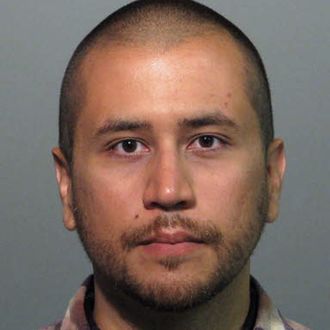
Special Prosecutor Angela Corey’s office released a trove of new information on Thursday about Trayvon Martin’s shooting death that includes some compelling new details, among them: a Sanford Police investigator wrote in a report that the encounter between Martin and Zimmerman was “ultimately avoidable.”
Ben Crump, attorney for the Martin family, said, “The police concluded that none of this would have happened if George Zimmerman hadn’t gotten out of his car. If George Zimmerman hadn’t gotten out of his car, they say it was completely avoidable. That is the headline.”
That is the headline. And it may be true that Zimmerman, facing charges of second-degree murder in Martin’s death, acted as an aggressor who instigated the fatal confrontation. But under Florida’s Stand Your Ground law, which this case will ultimately turn on, a judge may find that Zimmerman was still permitted to use deadly force in self-defense.
The nearly 200 pages of released documents, photos, and audio recordings, included the March 13 report by lead investigator Christopher Serino. He wrote:
“The encounter between George Zimmerman and Trayvon Martin was ultimately avoidable by Zimmerman, if Zimmerman had remained in his vehicle and awaited the arrival of law enforcement, or conversely, if he had identified himself to Martin as a concerned citizen and initiated dialog in an effort to dispel each party’s concern.”
The pertinent part of the widely discussed (and ridiculed) Florida Stand Your Ground law that Zimmerman will attempt to use to absolve himself essentially says that a person who is not engaged in an unlawful activity, and who is attacked, may use deadly force if he or she reasonably believes it is necessary to do so to prevent death or great bodily harm to himself or herself or another.
But what about an aggressor who initiates an encounter, and then finds himself in fear of death or bodily harm?
The law contemplates this scenario, and states that the self-defense justification is not available to a person who:
(2) Initially provokes the use of force against himself or herself, unless:
(a) Such force is so great that the person reasonably believes that he or she is in imminent danger of death or great bodily harm and that he or she has exhausted every reasonable means to escape such danger other than the use of force which is likely to cause death or great bodily harm to the assailant;
This means that Zimmerman’s decision to get out of the car and confront Trayvon, while stupid and unjust, may not have any bearing on his innocence or guilt. What will matter is whether or not a judge believes that during the confrontation with Trayvon, Zimmerman reasonably felt that his life was in danger and did everything he could to escape the situation.
While it seems ridiculous that Zimmerman might have set in motion the events that led to Martin’s death and may not be found guilty of second-degree murder, that is how the statute could be interpreted. (Perhaps he will be found guilty of a lesser offense such as manslaughter.)
There’s evidence that Zimmerman was a few feet away from Trayvon when he fired the shot, which may imply that Zimmerman had room and ability to run away. There’s also evidence that Zimmerman had “bleeding tenderness to his nose,” supporting Zimmerman’s contention (to some degree) that Martin attacked him and punched him in the nose. This case is just unfolding.





























